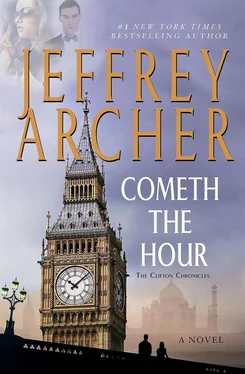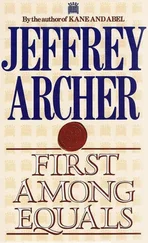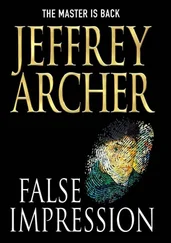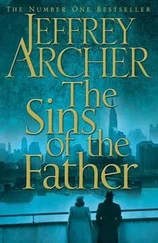“I’m feeding the little fellow through a gastric tube. We just have to pray his fragile body will accept it.”
Dr. Langley examined the child closely for some time before asking if he could see the mother.
“Yes, of course,” said Norris. He led the two Americans through to the private room where Virginia was lying in bed, wide awake. Immediately the door opened, she closed her eyes, lay still and tried to breathe evenly.
“I’m afraid it’s been rather an ordeal for the poor lady, but I’m confident she’ll recover quickly. I wish I could say the same for her child.”
Virginia was relieved they only stayed for a few minutes, and she didn’t open her eyes until she heard the door close behind them.
“If you’d like to remain overnight, we have a guest room, but if you return first thing in the morning, I’ll be able to give you my written report.”
The Americans took one more look at the baby before leaving.
Later that evening, Dr. Langley reported back to Grant’s lawyers that he doubted the child would make it through the night. But then, he had no way of knowing that the baby had never needed to be in intensive care in the first place.
Dr. Langley and his assistant returned to 41A Harley Street the following morning, when Norris was able to report a slight improvement in the child’s condition. His mother was sitting up in bed enjoying her breakfast. She looked suitably anguished and pale when they visited her.
Other visitors dropped in during the week, including Virginia’s father and her three brothers, as well as Bofie Bridgwater, Desmond Mellor and Priscilla Bingham, who were all delighted by the child’s progress. Virginia was surprised how many people said, “He’s got your eyes.”
“And your ears,” Bofie added.
“And the ancestral Fenwick nose,” pronounced the earl.
On the seventh day, mother and child were allowed to go home, where the responsibility for the infant was taken over by Nanny Crawford. However, Virginia had to wait another three weeks before she could begin to relax, and that was only after she had been told, courtesy of Mellor Travel, that Dr. Langley and his assistant had boarded a plane for New York, accompanied by one of the detectives.
“Why hasn’t the other one gone back with them?” she asked Mellor.
“I don’t know yet, but I’ll find out.”
A wire transfer for $750,000 arrived at Coutts three days later, and was credited to the account of Lady Virginia Fenwick. Mr. Fairbrother rang and asked if her ladyship wanted the dollars converted into pounds.
“What’s the spot rate as we speak?” Virginia asked.
“Two sixty-three to the pound, my lady,” said a surprised Fairbrother.
“So what amount in sterling would be credited to my account?”
“£285,171, my lady.”
“Then go ahead, Mr. Fairbrother. And send me confirmation the moment you’ve completed the transaction,” she added, before putting the phone down.
Desmond Mellor smiled. “Word perfect.”
Virginia and a healthy little boy moved into No.9 Onslow Gardens sixteen days later, along with Nanny Crawford, the butler and a housekeeper. Virginia inspected the nursery briefly and then handed the child over to its willing new devotee, before disappearing downstairs.
The christening was held at St. Peter’s, Eaton Square, and was attended by the earl of Fenwick, who made one of his rare visits to London, Priscilla Bingham, who had reluctantly agreed to be a godmother, and Bofie Bridgwater, who was delighted to be a godfather. Desmond Mellor kept a wary eye on a solitary figure seated at the back of the church. The vicar held the baby over the font and dipped a finger in the holy water, before making a sign of the cross on the child’s forehead.
“Christ claims you for his own. Frederick Archibald Iain Bruce Fenwick, receive the sign of his cross.”
The earl beamed, and Mellor looked around to see the lone detective had disappeared. He had honored his part of the bargain, and now he expected Virginia to keep hers.
William Warwick was just about to arrest the wrong person when there was a gentle tap on the door.
The rule was sacrosanct in the Clifton household. It had to be a serious matter — a very serious matter — before any member of the family would consider interrupting Harry while he was writing. In fact, he could recall the three occasions it had occurred during the past twenty-five years.
The first had been when his beloved daughter Jessica had won a scholarship to the Slade School of Fine Art in Bloomsbury. She had burst into the room without knocking, waving the letter of acceptance, and Harry had dropped his pen and opened a bottle of champagne to celebrate. The second was when Emma had won the casting vote over Major Alex Fisher to become chairman of Barrington’s Shipping, and the first woman to chair a public company; another bottle of champagne. And the third he still considered to be marginal. Giles had barged in to announce that he’d been offered a peerage by Harold Wilson and would be taking the title Lord Barrington of Bristol Docklands.
Harry put his pen down on his desk and swiveled his chair around to face the intruder. Emma walked in, her head bowed, tears streaming unchecked down her cheeks. Harry didn’t need to be told that his mother was dead.
Harry spent more hours working on the eulogy for his mother’s funeral than he had on any lecture, address or speech he’d ever delivered in the past. His final draft, the fourteenth, in which he felt he’d captured her indomitable spirit, ran for twelve minutes.
He visited St. Luke’s the morning before the service so he could see where he would be sitting and how far it was from the pulpit. He then tested the acoustics to find out how well his voice carried. The Dean of St. Luke’s pointed out that if there was a large congregation, his words might be a little muffled. A useful warning, thought Harry, because the church turned out to be so packed that if the family hadn’t had reserved seats, they would have had to stand at the back. The order of service had been chosen in advance by Maisie, so no one was surprised that it was traditionally English, and very Maisie: “Rock of Ages,” “Abide with Me,” “To Be a Pilgrim” and of course “Jerusalem,” ensured that the congregation sang with heart and voice.
Sebastian had been selected to read the first lesson. During the last verse of “Abide with Me,” he walked slowly up to the lectern, no longer trying to disguise a slight limp that had taken longer to recover from than the Indian surgeon had predicted. No one could predict how long it would take to recover from the last funeral he’d attended.
He began to read 1 Corinthians, Though I speak with the tongues of men and of angels, but have not charity, and Giles delivered the second reading, a poem by Kipling, If you can keep your head when all about you ... while the choir sang “O Rejoice That the Lord Has Risen.” By the time Harry rose from his place in the front row and made his way to the pulpit during the last verse of “Abide with Me,” there was a sense of anticipation as he climbed the pulpit steps. He placed his text on the small brass lectern and checked the opening sentence, though in truth he knew the whole script by heart. He looked up and, once the congregation had settled, he began.
“How proud my mother would have been to see so many of you here today, some who have traveled from far and wide to celebrate her amazing life. You just can’t fill the churches nowadays, she used to say. Can’t understand it myself, because when I was a child the sermons went on for over an hour. Dear Mother,” Harry said, looking up at the ceiling, “I promise mine won’t be over an hour, and by the way, the church is packed.” A ripple of laughter broke out, allowing Harry to relax a little.
Читать дальше












